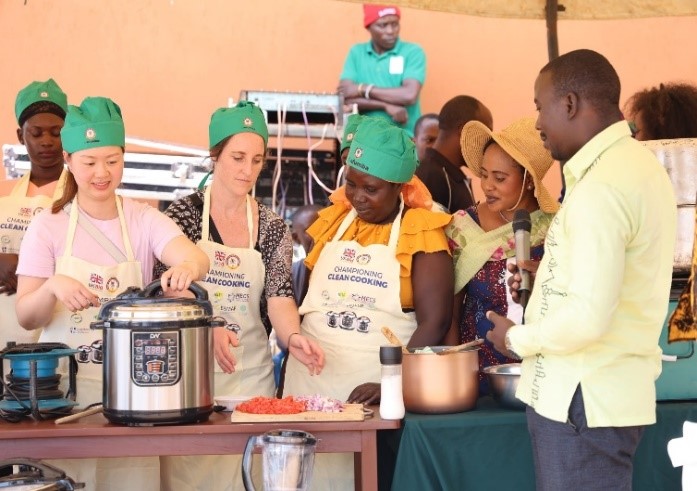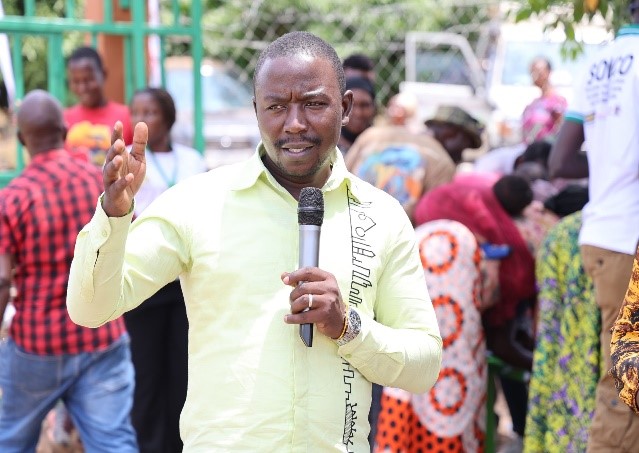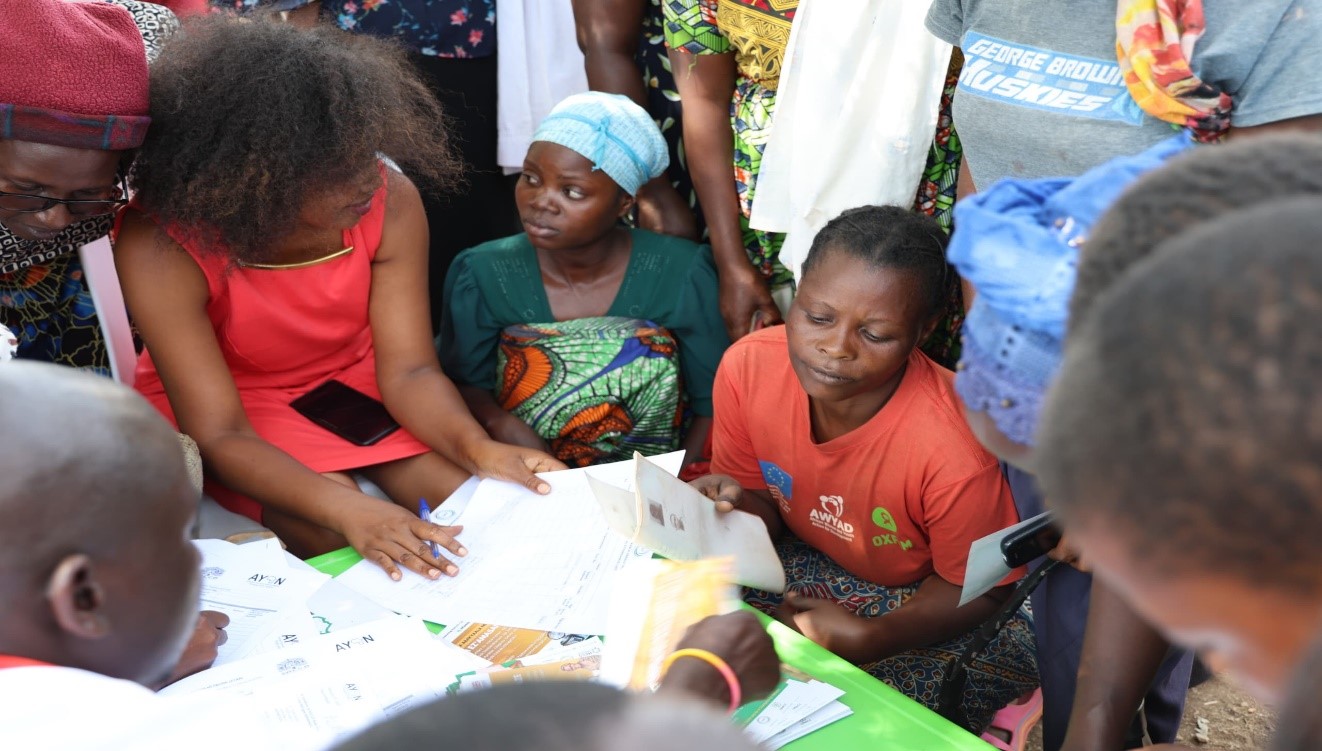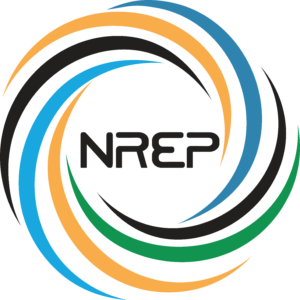On March 6, 2025, an impactful e-cooking demonstration was held at the Kyaka II Refugee Settlement in Kyegegwa District. SOLCO organized the event in collaboration with NREP to promote clean cooking solutions, debunk myths about electric cooking, and showcase its benefits. Key stakeholders, including representatives from the IKEA Foundation, UNHCR, the Office of the Prime Minister (OPM), Last Mile Climate, and the African Youth Action Network, participated alongside members of the refugee and host communities. The event underscored the potential of electric cooking to improve health, reduce environmental degradation, and encourage gender inclusivity in household responsibilities.

Key Highlights & Observations
The electric cooking demonstration in Buruuli was an engaging and hands-on event designed to promote modern clean cooking technologies as viable alternatives to traditional biomass-based methods. The Uganda National Alliance on Clean Cooking (UNACC) presented a variety of energy-efficient cooking appliances to the audience. Initially, many attendees were doubtful about whether these modern appliances could effectively cook their staple foods.
To dispel these doubts, a live cooking session was organized, featuring key dignitaries, including His Royal Highness the Isabaruuli, the State Minister for Energy, the Member of Parliament for Nakasongola, and the LCV Chairperson. Each of them took turns using electric pressure cookers (EPCs) to prepare popular local dishes such as cassava, kalo, beef, and molokoni (cow hooves). The demonstration proved successful, as the meals were cooked efficiently without the smoke, soot, or physical effort associated with firewood and charcoal. This practical showcase transformed perceptions, with many in the audience expressing a newfound interest in adopting electric cooking.
A particularly powerful moment was an address by Mrs. Oliver Mbakolaki Buyinza, the Minister for Gender and Women Empowerment in Buruuli Kingdom. She passionately highlighted the challenges women endure due to dependence on firewood, including health hazards from smoke inhalation and the significant time spent gathering fuel. She encouraged women to embrace electric cooking, emphasizing its potential to improve their well-being, save time, and create economic opportunities. Her speech struck a chord with many attendees, inspiring them to consider making the transition.
However, some cultural and political leaders voiced concerns about the reliability of electricity in the area, noting that an unstable power supply could hinder the large-scale adoption of electric cooking. In response, the State Minister for Energy reassured the community that initiatives were underway to enhance electricity stability in Nakasongola, reaffirming the government’s commitment to making clean cooking accessible and practical for households.

Key Challenges & Lessons Learned
While the demonstration generated significant interest, several challenges must be addressed for large-scale adoption. Limited access to stable electricity remains a major barrier, with many households expressing concerns about frequent power outages and inconsistencies in supply. Additionally, the high upfront costs of e-cooking appliances pose a financial burden, making affordability a key issue that requires targeted subsidy programs and flexible financing options.
Cultural perceptions and resistance to change also emerged as challenges, as some community members remain skeptical about shifting from traditional biomass-based cooking methods. Effective behavior change communication strategies, including continuous awareness campaigns and hands-on training sessions, will be essential in fostering long-term acceptance.
A key lesson from the event was the importance of a multi-stakeholder approach in advancing e-cooking adoption. Collaborative efforts between government agencies, development partners, and the private sector will be critical in addressing infrastructure gaps, ensuring affordability, and enhancing community engagement. Additionally, integrating e-cooking initiatives with broader clean energy and climate resilience programs can enhance their sustainability and impact.

Conclusion
The e-cooking demonstration at Kyaka II Refugee Settlement marked a pivotal step toward the adoption of sustainable and modern cooking solutions. By successfully raising awareness and shifting perceptions, the initiative demonstrated the feasibility and advantages of electric cooking.
To advance these efforts, fostering strategic partnerships will be critical in addressing infrastructure gaps, ensuring affordability, and scaling up adoption. Continued engagement with policymakers, private sector players, and local communities will be essential in overcoming implementation barriers. Additionally, investments in reliable power supply, appliance affordability programs, and targeted awareness campaigns will further drive the transition to clean cooking.
By sustaining these initiatives, e-cooking can become a transformative reality, enhancing public health, reducing environmental degradation, and empowering communities toward a more sustainable future.



